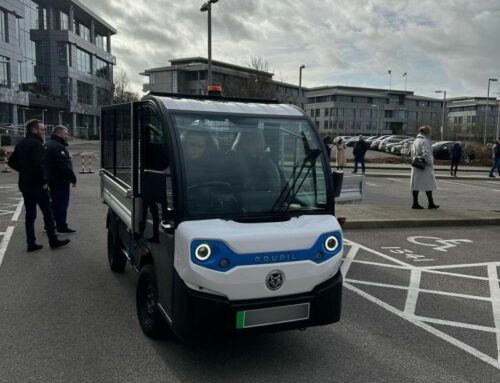
Nissan's Jordi Vila: plans to have the right network providing great infrastructure with a great product range
At the recent Hannover Show, Colin Dawson caught up with Nissan general manager fleet & LCV corporate sales Jordi Vila, who explained how important the UK LCV market is to the company
Nissan is stepping up its support for small and medium-sized businesses with a number of strategies. Jordi Vila, Nissan general manager fleet & LCV corporate sales, told Business Vans that the company had been concentrating on fleet sales throughout Europe for some time, with a number of activities designed to reinforce its network. Among these were the introduction of ‘Fast Track’ opening hours and adaptive service contracts.
He said: “We want to be closer to our customers. We want to be their business partner. We’re not just looking at our products, but at the service we offer and our relationship with our customers.
“We have been running training models not only on the commercial sales side, but also on aftersales. Our aim is to have a higher degree of capability to better serve our business customers on both the sales and service side.”
Network improvements have already started in the UK with solid Business Centre Network infrastructure, business plans and finance plans.
“SMEs – small businesses and fleet sales – are very important to Nissan and we plan to grow the number of Business Centres in the UK,” Vila said. “Our plans are to have the right network providing great infrastructure with a great product range. “The network is vital. There’s no point in having the right product range without the right network,” he said.
“Nissan is intending to grow Europe-wide and in the UK. The UK market is very important for Nissan. We were at 4.4% of UK market share in August. We will double our sales at European level between the fiscal years 2011-14 from 50,000 to 100,000 units.
“It won’t double in the UK – I would love it to – but we certainly intend our UK share not to be below the average market share.”
He said the traditional LCV markets for Nissan in Europe used to be Italy and Spain, but over the past five to six years, the UK had maintained steady growth.
“This is thanks to Nissan’s product line-up, starting with the pick-ups – the Navara has been a very successful story – then the Cabstar, which has always been as asset.
“But really the element and the lever that makes us grow is the NV200. If we analyse the figures for the UK, the growth has mainly been driven by the NV200 year on year, although the NV400 is now making inroads. Cabstar and Navara are pretty much market leaders.”
The Navara had been sold as a lifestyle vehicle, but a new ‘stripped-down’ version has been introduced designed to appeal more to serious business users.
He said the UK was now in the top three markets for LCV vehicles for Nissan in Europe.
“Some months it is leading some months it is in second or third place.” Vila said. “This is very different from five to seven years ago. An important factor is that growth in UK in the past was very much based on one product but Nissan now has a range of products making us a true sustainable player in the marketplace.”
Nissan has been sometimes been asked whether the company is a car manufacturer making vans.
“Nissan is very much an LCV maker,” Vila said. “More and more our worldwide figures cannot be delivered without proper performance in LCV sales. Worldwide, LCVs will account for around 20 per of sales. Nissan globally is not heavy truck maker but we are definitely a car and van manufacturer.”
He said that the importance of the LCV market had been realised by Nissan’s top management and that’s why so much investment in LCV development and Business Centre Networks had been made.

Nissan's UK growth has mainly been driven by the NV200 year on year, although the NV400 is now making inroads
But the company had no plans to introduce a smaller LCV than the NV200. The NV200 was a ‘small big van’. It was not an estate car minus side windows. This type of vehicle was an improvement on traditional car-derived vans with access from side as well as from the rear.
“If you look at the figures across Europe the 1 tonne-1.2 tonne sector is growing. Our aim is to exploit that,” Vila said.
Asked what makes Nissan a good prospect for sole traders and SME business van operators, he said: “In a nutshell, the proximity of service, because of the range, and last, but not least, because Nissan provides a competitive product.”
Keep up to date with developments in our Business Van News section.







Leave A Comment